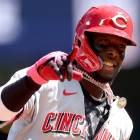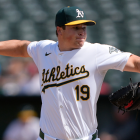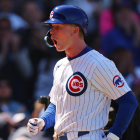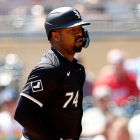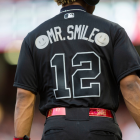Five years ago, two of the biggest collapses in baseball history played out simultaneously. The Braves had a 9 1/2 game lead for the wild card spot -- those were the days of the old single wild card system -- with 32 games to play, but they then went 11-21 the rest of the way and missed the postseason. The Cardinals got the wild card spot instead.
And yet, it's easy to overlook the Braves' collapse that year because the Red Sox stole the show with their collapse. Boston had a two-game lead in the AL East and a nine-game lead for the wild card spot with 29 games to play. They lost 21 of those 29 games, including Game 162, which eliminated them from postseason contention. I'm sure you remember this:
Brutal. That walk-off loss to the Orioles combined with the Rays' walk-off win over the Yankees bounced the Red Sox from postseason contention on the final day of the regular season. The Braves got off easy, by comparison. No one thinks about their collapse. It's all about the Red Sox when you think about to 2011.
That late-season collapse led to sweeping changes for the Red Sox. Sweeping changes that are now impacting the 2016 postseason. There are three clubs still alive this postseason and all three have significant ties to that 2011 Red Sox club.
 Chicago Cubs: Theo Epstein
Chicago Cubs: Theo Epstein
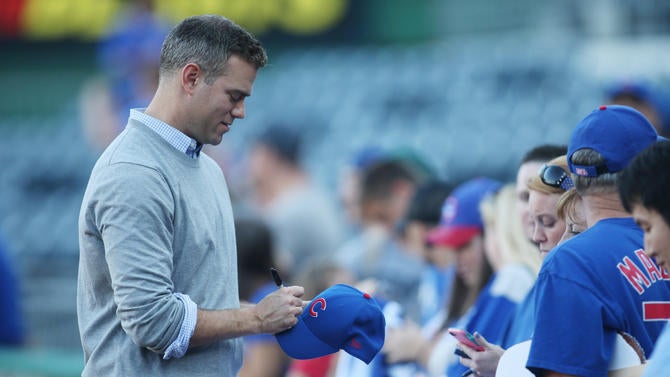
Epstein was the general manager of the 2011 Red Sox, and after the team's collapse, he was given permission to interview with other clubs. The Cubs, who were in desperate need of a rebuild at the time, hired him. The two clubs issued a joint press release on October 22, 2011, announced Epstein was leaving the Red Sox to join the Cubs.
Officially, Epstein resigned as Red Sox general manager. He was named Chicago's president of baseball operations, and he brought in Jed Hoyer to be his general manager. Hoyer worked with Epstein in Boston and was the general manager of the Padres at the time. Jason McLeod also joined the Cubs' front office that winter. He worked with Epstein and Hoyer in Boston, and Hoyer again in San Diego.
In the five years since leading the Red Sox, Epstein has transformed the Cubbies from a 91-loss team into a 103-win juggernaut on the verge of going to the World Series. The Cubs also appear to be set up for perennial contention as well. Had the Red Sox not collapsed in 2011, Epstein might still be in Boston. The bitter taste the collapse left in everyone's mouth led to him pursuing other opportunities.
 Cleveland Indians: Terry Francona
Cleveland Indians: Terry Francona
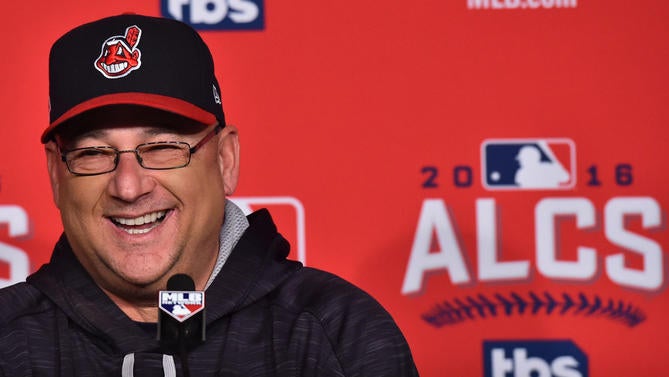
Francona was hired as Red Sox manager prior to the 2004 season and he led the team to World Series titles in 2004 and 2007. After the 2011 collapse though, the two sides agreed to part ways. "I think it's time for a new voice here," said Francona at the time. "I think it's the right thing to do for the organization and myself."
Rather than look for another managerial job, Francona spent the 2012 season as an analyst with ESPN. Eventually the itch to manage returned, and in October 2012, he agreed to join the Indians as their new skipper. Francona had spent time in the Cleveland front office earlier in his career and remained close with then-Indians present Mark Shapiro and general manager Chris Antonetti.
The Indians lost 94 games in 2012, but since Francona took over in 2013, they've never won fewer than 81 games. They've won 85-plus games three times in four years. Francona was named AL Manager of the Year in 2013 and he could easily win the award again this year. His work this postseason has been masterful as well. Who knows what happens if the Red Sox don't collapse in 2011. Does Francona stay on, or does he still feel they need a "new voice?"
 Los Angeles Dodgers: Adrian Gonzalez
Los Angeles Dodgers: Adrian Gonzalez
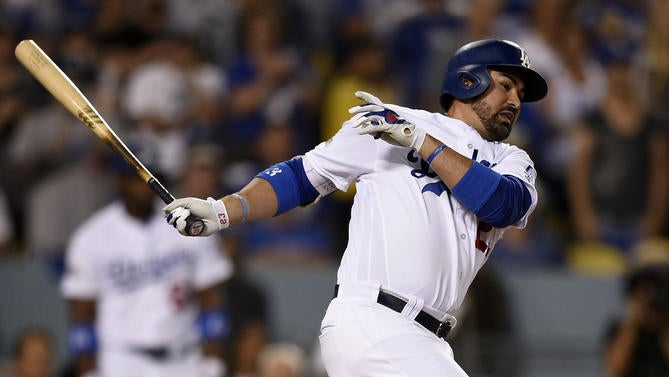
Of course, no one is more responsible for Boston's collapse in 2011 than the players. At the end of the day, they're the ones throwing pitches and swinging the bats. They failed. And since Gonzalez, along with Carl Crawford, was the Red Sox's big new addition that year, he shouldered much of the blame. He was brought in to have a big impact and get the team over the hump. It didn't happen.
Gonzalez remained with the Red Sox to begin the 2012 season, though they spent much of the season in last place. So, on August 25, 2012, the BoSox traded Gonzalez (and Crawford) to the Dodgers in an absolute blockbuster. It was an eight-player trade in which over $250 million worth of contracts changed hands. We haven't seen a trade that massive since.
Since arriving in Los Angeles, Gonzalez has been a mainstay in the middle of the Dodgers' lineup, hitting .283/.344/.462 (124 OPS+) with 98 home runs and 418 RBI in 664 total games. He drove in 90 runs for the 10th straight season in 2016. No other players can make that claim. (Albert Pujols and Miguel Cabrera each have nine 90-plus RBI seasons in the last 10 years.)
It's a common misconception that Gonzalez was bad while with the Red Sox. That isn't the case at all. The guy hit .321/.382/.513 (139 OPS+) with 42 home runs, 203 RBI, and +9.9 WAR in 282 games with Boston. That's really good! He was blamed for the 2011 collapse, however, as was Crawford, so eventually the Red Sox jettisoned him to Los Angeles, where he has been a key piece of the team ever since.
Looking back on things now, it appears the decisions made by the Red Sox following their 2011 collapse have worked out well for everyone. Boston won the World Series in 2013 and they're loaded with young talent now. The Cubs have dynasty potential. The Indians have already won this year's AL pennant. The Dodgers have been to the postseason in all four of Gonzalez's full seasons with Los Angeles.
Had the 2011 Red Sox not collapsed so spectacularly, who knows how different things would be right now. Maybe Epstein and Francona never leave Boston. Maybe Gonzalez is seen as a hero, not a goat, and he'd still be plying his trade in Fenway Park. It's one of baseball's great "what ifs." I know this much for sure: the fallout from Boston's collapse in 2011 has had a major impact in shaping the 2016 postseason.















